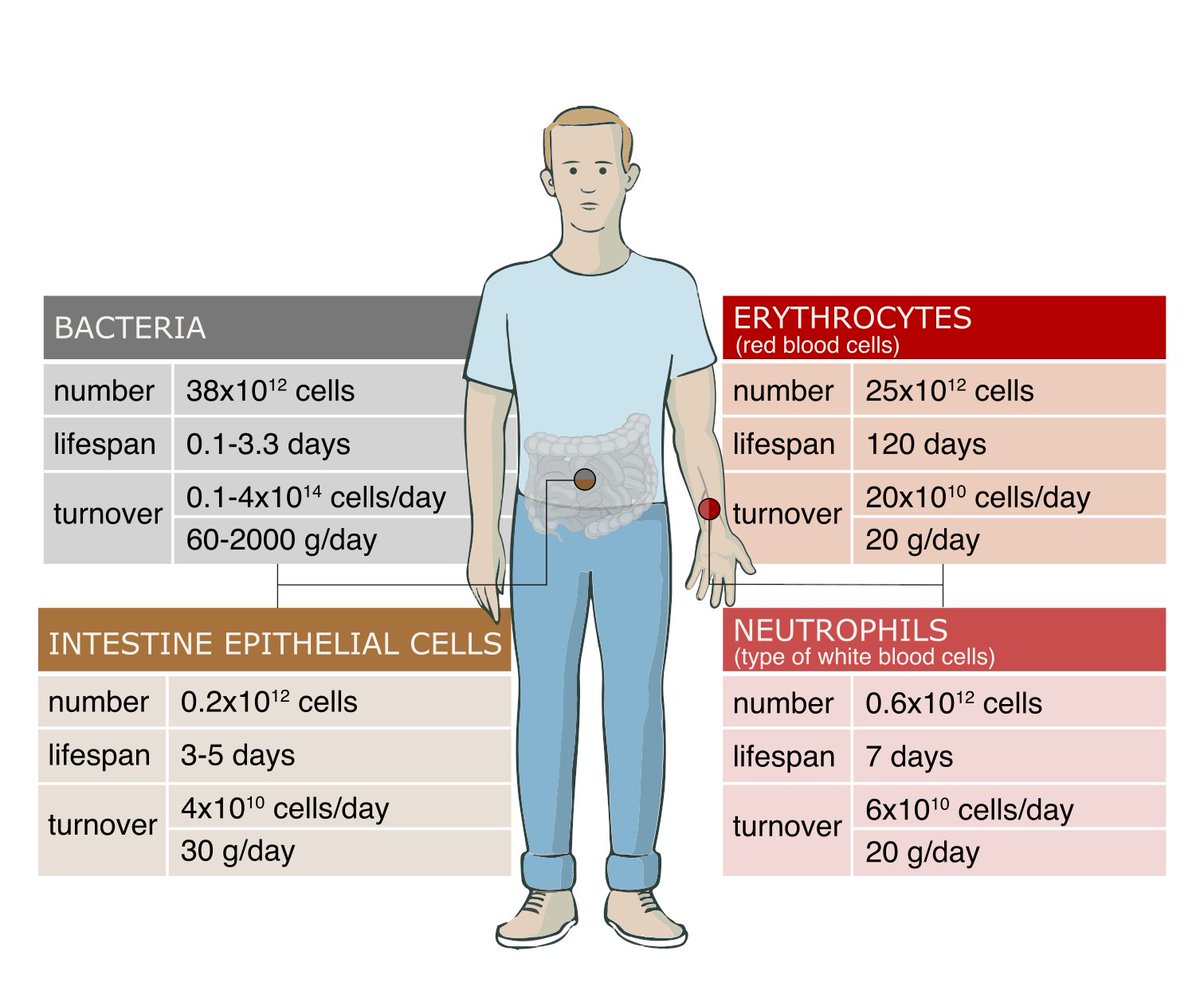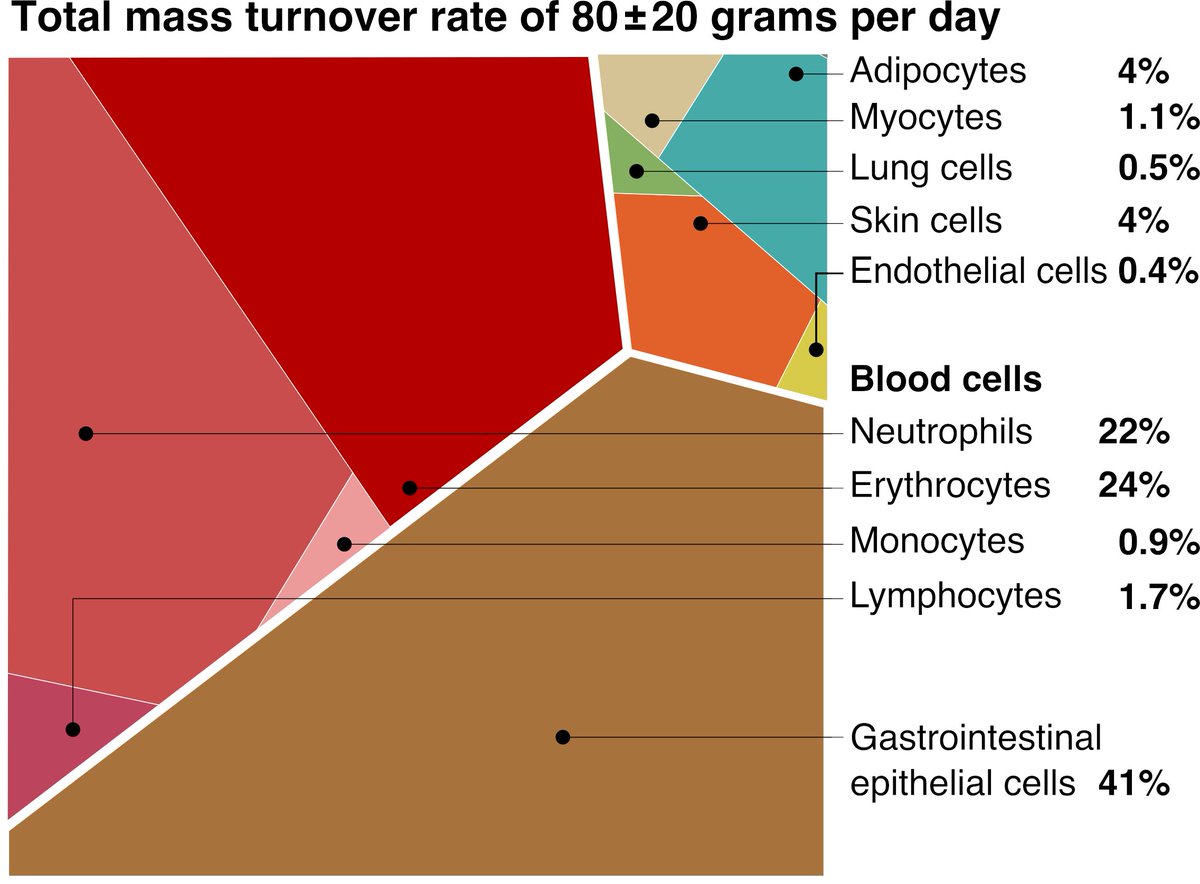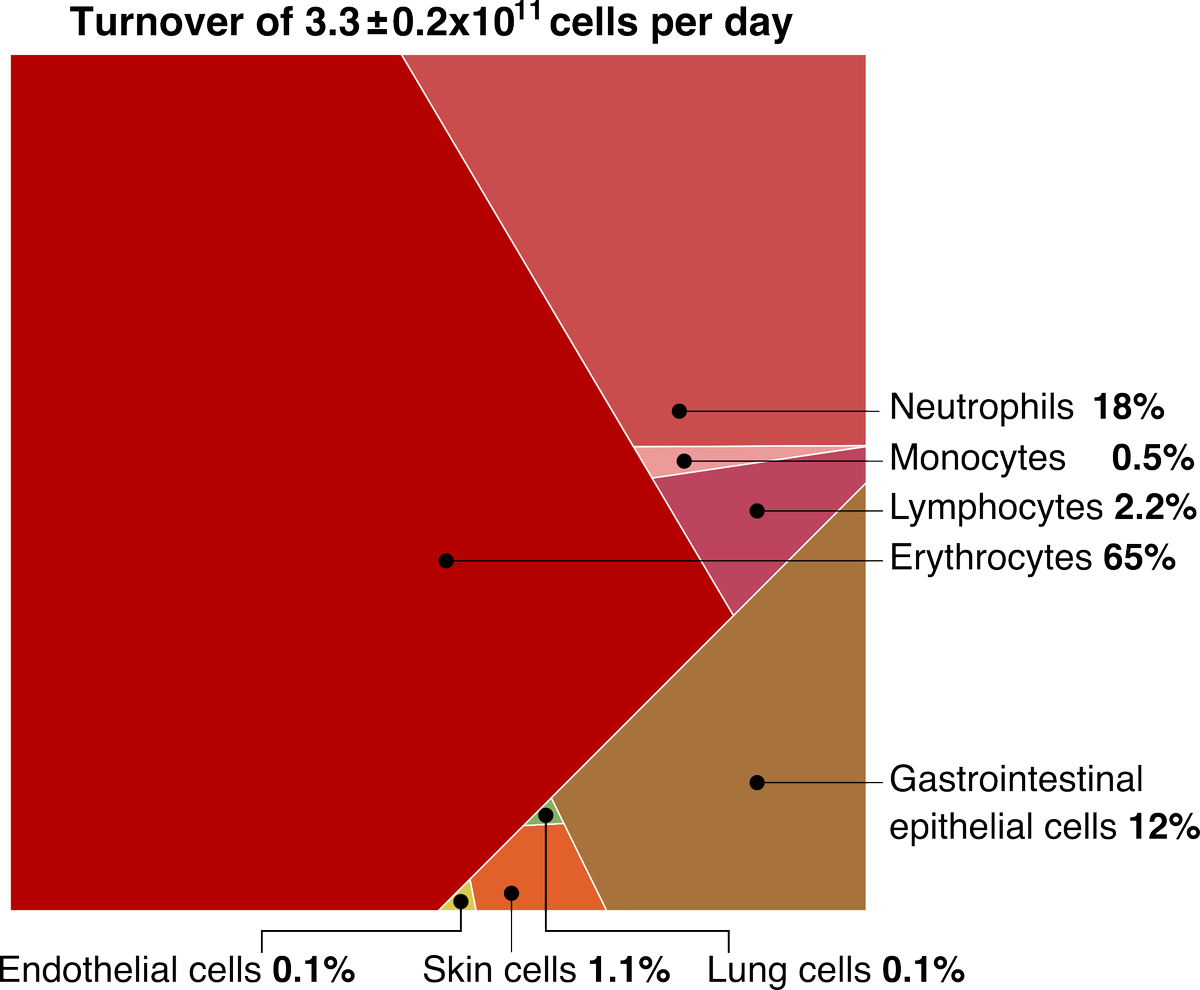1/ How long does it take for our body to replace its cells? “The Distribution of Cellular Turnover in the Human Body” presents a quantitative perspective @NatureMedicine https://rdcu.be/cdnXJ
2/ We integrate ubiquity, mass, and lifespan of all major cell-types to achieve a comprehensive quantitative description of cellular turnover. We find total cellular mass turnover of 80±20 g/day, dominated by blood cells (in reds in the figure) and gut epithelial cells (in brown)
3/ A human body contains about 30 trillion human cells. Each day, about 300 billion cells die and about the same number are born to replace them (equal to 4 million cells per second)
4/ Roughly 90% of this cellular death and birth is due to red blood cells (erythrocytes) and white blood cells (neutrophils, monocytes and lymphocytes) which have a lifespan between one day and a few months.
5/ Overall, we find that every 80 days our bodies produce a number of new cells roughly equal to the total number in the body. In terms of mass, we create our weight in new cells every year and a half
6/ Let’s not forget that there are about 40 trillion bacterial cells in our bodies, about the same number of bacteria as human cells. The bacteria in our guts replace themselves at a bewildering pace, with a production rate of at least ≈100 grams a day

 Read on Twitter
Read on Twitter




